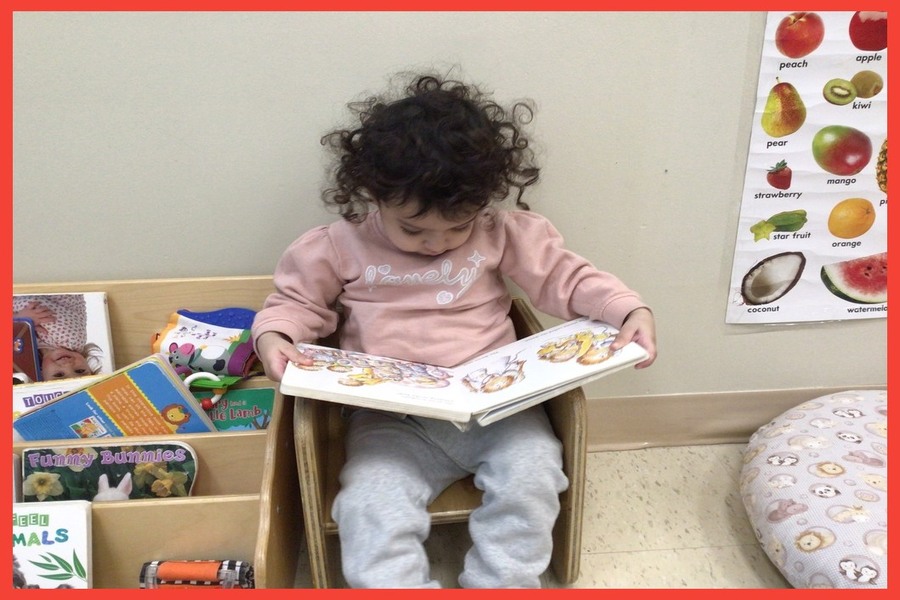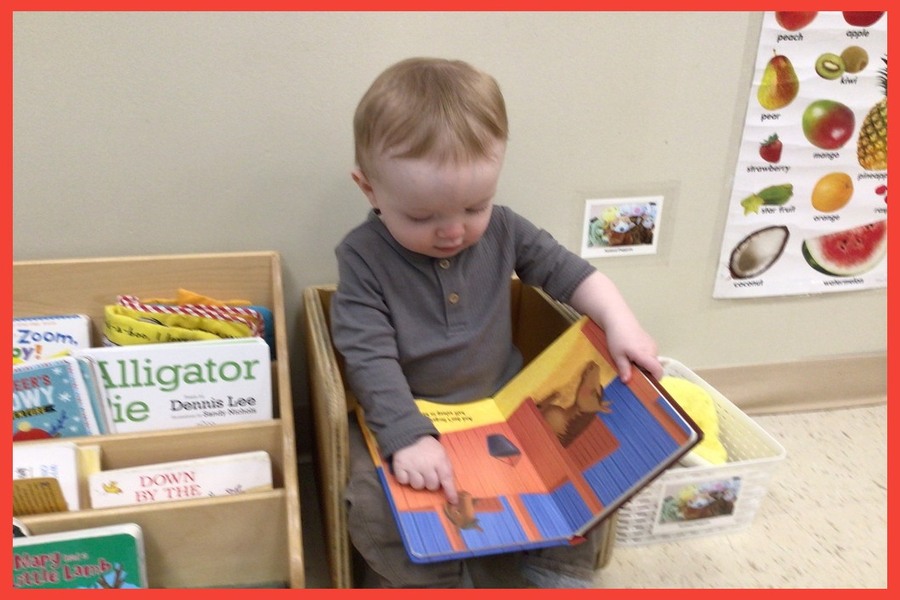
Description & Learning Objectives
The books within our classroom are filled with familiar sights, such as animals, families, vehicles, and food. Infants benefit from books that are based on reality and relevant to their own real-life experiences. Sometimes these books will contain repetitive words or phrases that, when read often enough, allow the children to be able to join in. The children often place a finger on an image and name what they see. When reading together, the teachers will engage in conversation with the children, helping them to learn new words or phrases. Books provide the children with opportunities to not only see and read about the familiar, but they also present greater concepts such as different people, cultures, ages, physical abilities, and much more!
Materials
- Various types of age appropriate books (can be bought, borrowed or even homemade)
Observations & Findings
Through the use of books, children are able to build on many skills that they will need as they mature and get older. Reading books helps develop symbolic thought, representation, and root skills of literacy. They begin to understand that everything they see, whether it be objects, people, or places, all have a name. As they point to the things they see in books and listen to someone read the words, they are able to store that information into their minds and be able to make connections of what they’ve seen in books to the things they have seen or experienced within their everyday lives.
Reading books is a great way to help develop children’s receptive and expressive language skills. Many children tend to like hearing the same stories over and over again. The best way for children to build their vocabulary is through the repetition of hearing the same stories or words over and over again. Eventually you may even notice that they’ve memorized the book, and are able to join in on the story telling or even read and name some of the pictures they see without your assistance.
Books are great tools for assisting in children’s growth, and their love for reading begins with us! As adults we need to foster and encourage the excitement of reading and trying to incorporate it within our daily lives. Finding the joy and pleasure in reading allows children to build on their independence and help nurture their capabilities.


